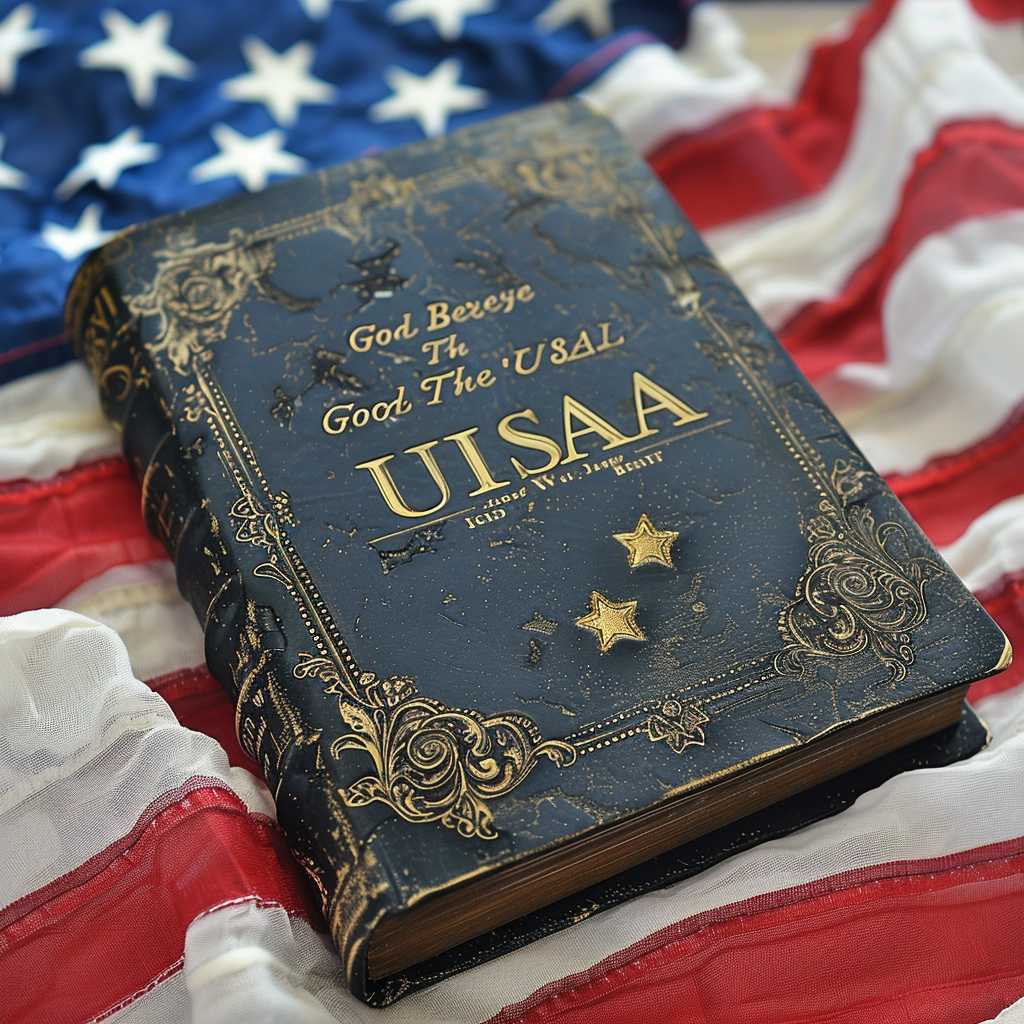The Emergence of the God Bless the USA Bible and Its Significance
In recent times, a new iteration of the Holy Scriptures has made its presence felt across a wide span of the American Christian landscape – the “God Bless the USA Bible.” This version not only contains the complete texts of the Old and New Testaments but also integrates patriotic elements that resonate deeply with American cultural identity. Its emergence has sparked an array of responses, stretching from high praise for intertwining faith and patriotism to critical analysis over the melding of church and state ideals.
Origins and Constituents of the God Bless the USA Bible
The God Bless the USA Bible surfaced out of a collaboration effort with country singer Lee Greenwood, who is famously known for his patriotic anthem, “God Bless the U.S.A.” Drawing inspiration from Greenwood’s song, which has served as an emblem of patriotism for several decades, publishers aimed to create a Bible that would encapsulate both the word of God and the spirit of American patriotism.
This distinctly American Bible includes not only the Protestant canon but also embraces pivotal historical documents such as The U.S. Constitution, The Bill of Rights, The Declaration of Independence, and the Pledge of Allegiance. Additionally, it features Greenwood’s lyrics to “God Bless the U.S.A.” It comes with distinctive features such as a presentation page for gifting occasions like military promotions or citizenship ceremonies.
Market Reception and Demographics
The God Bless the USA Bible has seen a welcoming reception in various evangelical and patriotic circles. Many have lauded it as a brilliant blend that honors both Christian faith and national heritage. Moreover, it appeals to demographic groups who place a high value on civic engagement and Christian principles and often see these values as interwoven and inseparable parts of their identity.
Market analytics reveal that this edition has a particular appeal amongst military families, community organizers in faith-based patriotic events, and church attendees in historically conservative regions. Sellers report substantial interest during patriotic holidays like the Fourth of July, Memorial Day, and Veterans Day.
Controversies and Criticisms Surrounding the Publication
Despite its commercial success among certain groups, the God Bless the USA Bible has not been without controversy. Critics argue that the integration of nationalistic elements into a sacred text oversimplifies the relationship between Christianity and patriotism and potentially leads to a conflating of religious life with national loyalty.
Some theological experts express concerns over “American civil religion,” suggesting that such editions may inadvertently promote a version of Christianity that recognizes American nationalism as part of its faith statements. Moreover, advocates for separation of church and state observe that fusing national documents with religious texts could endorse an endorsement of religion by government authorities contrary to constitutional principles.
Impact on Faith Communities and Broader Societal Implications
The introduction of the God Bless the USA Bible within faith communities has been both significant and controversial. On one hand, religious leaders who prioritize national identity alongside religious beliefs incorporate this Bible into their congregational life with enthusiasm. On the other hand, other clerical voices within Christianity argue for caution against mingling nationalism with scriptural authority, advocating for careful discernment between God’s kingdom and earthly kingdoms.
In broader society, this new version of the Bible invites ongoing discussion on topics like religious liberty, national identity, and cultural diversity. It serves as a touchstone reflecting current debates over how public expressions of religion interact with communal life in America’s diverse landscape.

